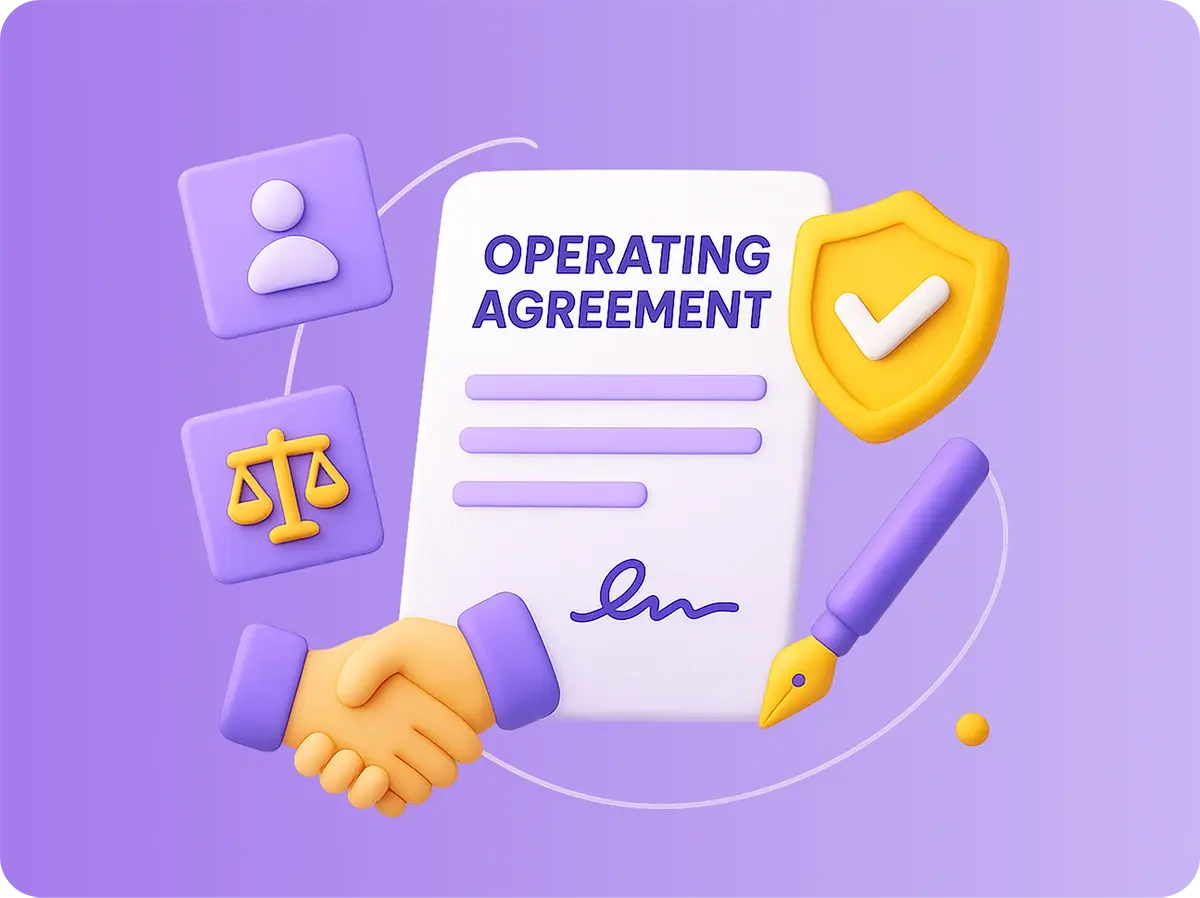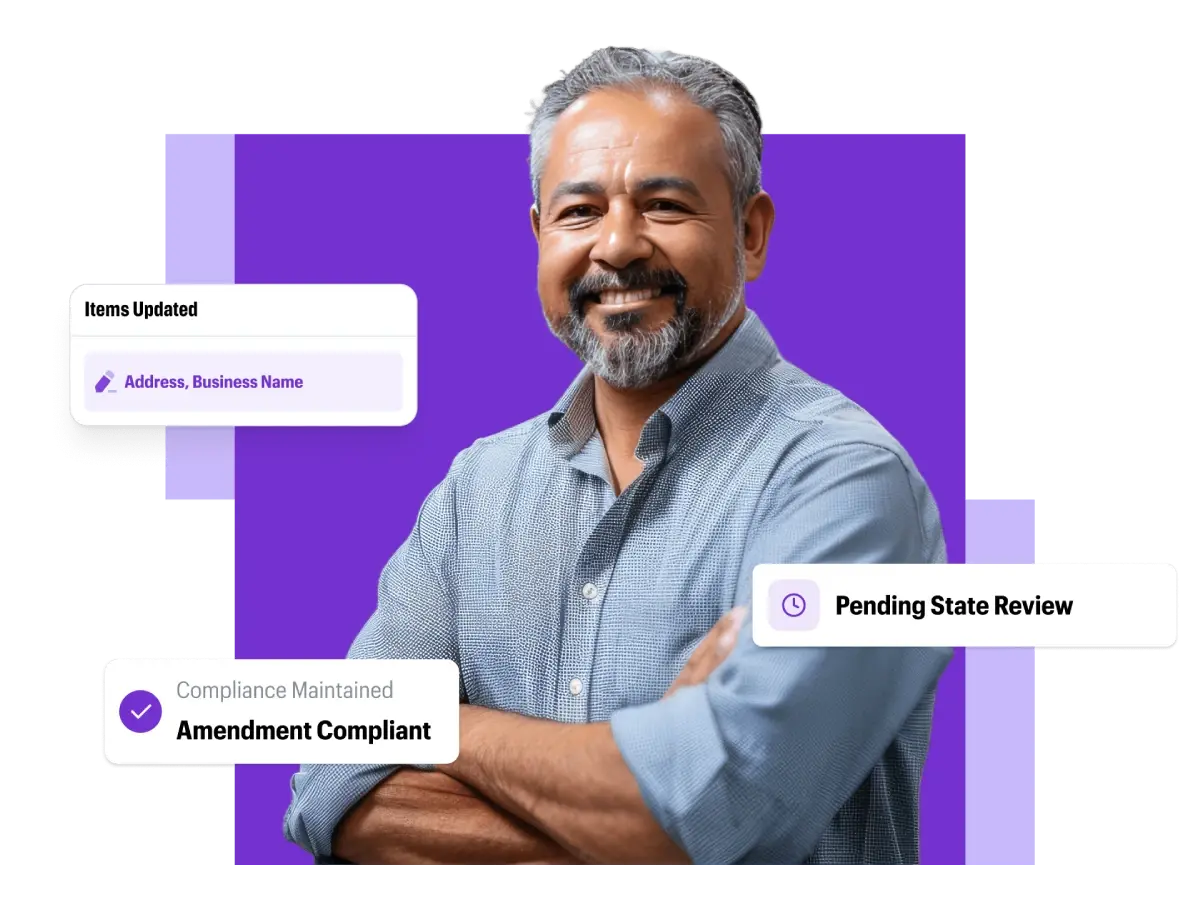Starting a business without proper legal protection is like driving without insurance—you’re one accident away from losing everything. Here’s a sobering fact: 37% of small businesses faced employee lawsuits last year, and America's small businesses shoulder $160 billion in liability costs annually.
The solution? A Limited Liability Company (LLC) that protects your personal assets, saves you money on taxes, and positions your business for growth.
What Is an LLC and Why It Matters
An LLC creates a legal separation between you and your business, acting as a protective shield for your personal assets while giving you operational flexibility.
It's no wonder LLCs account for 35% of all business formations, making them the most popular choice for entrepreneurs.
5 Critical Reasons to Form an LLC
1. Protect Your Personal Assets
Without an LLC, you're operating as a sole proprietorship—meaning no legal separation between you and your business. If someone sues or you can't pay business debts, they can come after your home, car, and savings.
Real Life Example:
When Mike's e-commerce business faced a $200,000 lawsuit over a defective product, his LLC protected his personal assets. The customer could only pursue business assets—not Mike's home or savings.
2. Unlock Tax Advantages
- Pass-through taxation (no double taxation)
- S-Corp election option
- Business deductions for equipment, travel, home office
- Higher retirement contribution limits
3. Build Instant Credibility
Having "LLC" in your business name signals professionalism, making it easier to:
- Apply for business loans
- Sign vendor contracts
- Attract customers and partners
- Open business bank accounts
4. Maintain Complete Control
Unlike corporations, LLCs don't require board meetings, shareholder approvals, or complex formalities. You structure ownership and management in a way that makes sense for your business.
5. Access Business Services
Once formed, you can open business accounts, apply for credit, obtain licenses, hire employees, and sign contracts under your business name.
Essential Formation Requirements
Every state has slightly different requirements, but here are the universals:
- Unique business name (must include one of the "LLC" designators)
- Registered agent (receives legal documents)
- Articles of Organization (creates your LLC)
- Operating Agreement (defines ownership and management)
- State filing fee ($50–$520, depending on state)
- EIN from IRS (for taxes and banking)
Critical Timing: When to Form Your LLC
The golden rule: Form your LLC before you start conducting business.
Form your LLC before:
- Making your first sale
- Signing contracts
- Opening business accounts
- Spending significant money on equipment
- Marketing publicly
Don't wait until:
- You're "making enough money"
- You have employees
- You're ready to scale
- Someone threatens to sue
Real Consequence:
Jessica ran her consulting business for 8 months before forming an LLC. When a client disputed a $15,000 invoice and threatened legal action, Jessica's personal assets were at risk for those 8 months of unprotected activity.
Formation Process: DIY vs. Professional Service
DIY Formation (2–4 weeks + ongoing compliance tracking)
- Research state requirements
- Verify business name availability
- Find registered agent
- File Articles of Organization
- Create operating agreement
- Get EIN from IRS
- Handle ongoing compliance
Professional Service (1–2 weeks)
- Expert-prepared documents
- Built-in compliance tracking
- Registered agent service included
- Error-free state filing
- Ongoing support
What Happens After Formation
Immediate Action Items (First 30 days):
- Open business bank account
- Apply for business credit card
- Obtain necessary licenses
- Set up accounting system
- Get business insurance
Ongoing Compliance:
- File annual reports (most states)
- Maintain separate business records
- Pay quarterly taxes
- Update licenses as needed
The Bottom Line
Forming an LLC is more than a legal checkbox—it’s your first real step as a business owner.
The structure you choose today will shape your ability to protect assets, reduce tax burdens, and grow with confidence. The question isn't whether you can afford to form an LLC—it’s whether you can afford not to.
Your business is your future. Protect it.
BizUpUSA is here to help you get it right. With expert-built tools, step-by-step guidance, and real-time compliance tracking, forming your LLC has never been simpler.
This article is for informational purposes only and does not constitute legal advice. Consult with a qualified attorney for specific legal questions about your business formation.










SHARE